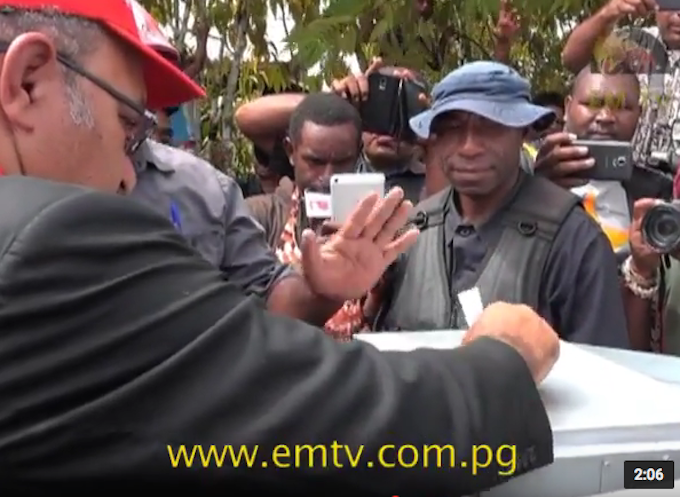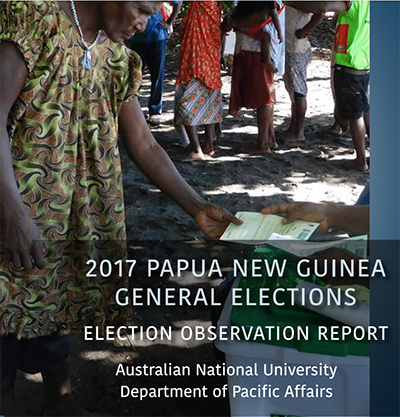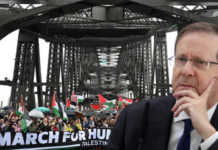
By Keith Jackson
Former Papua New Guinea prime minister Sir Mekere Morauta has strongly criticised “foreign governments and organisations”, singling out Australia, for their assessments of the 2017 PNG national election.
Sir Mekere accused them of “whitewashing the rigging and corruption associated with it”.
He was reacting to shocking revelations in independent election reports published by the Australian National University and Transparency International.
READ MORE: The rigging of the 2017 election – money, politics and corruption

“The ANU report and the report of TI PNG stand out in stark contrast to the remarks made by some foreign governments and in other observer reports of the 2017 election,” he said.
“While those other observers noted irregularities, mostly with the electoral roll, they failed to expose the widespread abuse, violence, intimidation and rigging that voters experienced.”
“It is true that the scope of other observer missions was not as wide as the ANU team, and their resources were more limited, but the variance in the findings is striking,” he said.
Sir Mekere particularly mentioned huge failings in the polls in National Capital District, Southern Highlands, Hela, Enga, Western Highlands and Jiwaka, although local observers in Chimbu also reported significant malfeasance in the way polling was conducted and considerable violence in Kundiawa town.
‘Ignored’ evidence
The former prime minister commended the work of the hundreds of Papua New Guineans, academics and researchers who contributed to the ANU report.
“The report was based on evidence that was either not noticed or was deliberately ignored by other teams apart from Transparency International,” he said.
“I trust that the other observer missions will now study the ANU and TI reports carefully and compare their own reports with them.
“I also trust that foreign governments study the reports and take stock of their opinions articulated at the time of the election, blindly praising Peter O’Neill and the Electoral Commission for the conduct and the result of the election.”
Sir Mekere particularly singled out for criticism the Australian Department of Foreign Affairs.
“I don’t know who DFAT talks to or where their intelligence comes from,” he said. “They are out of step with the thinking and experience of the vast majority of Papua New Guineans.
“How on earth could the Australian foreign minister [at the time, Julie Bishop] have congratulated PNG on a ‘successful election’?
‘Bad joke’
“At the time the remark was widely considered a joke, a bad joke, but it is a serious insult to the people of PNG.
“Most Papua New Guineans expect Australia not to tolerate corruption, not to endorse electoral fraud and rigging, and to condemn violence.
“We were amazed and very disappointed that the Australian government not only seemed to condone what had happened but continued to praise Peter O’Neill publicly.
“Australia’s long history of technical and financial support to the Electoral Commission also needs to be questioned,” Sir Mekere said.
“Australia gave assistance to the 2002, 2007, 2012 and 2017 elections. It does not seem to have resulted in an efficient, capable organisation or in free and fair elections.”
Sir Mekere said the 2017 election was by far the worst his country had experienced in terms of abuse, rigging and violence.
Turned blind eye
He said Australian advisers working in the Electoral Commission apparently turned a blind eye to malpractices concerning the storage and distribution of ballot papers, while the assistance to the electoral roll update clearly did not result in any material improvement.
“The 2017 election was designed to be chaotic; it was designed to be rigged; it was designed to produce a particular result,” he said.
“Those responsible for the chaos were Peter O’Neill, Isaac Lupari and the Chief Electoral Commissioner. They do not deserve praise for their actions.
“The ANU report should be a wake-up call for Australia to start thinking more constructively about its engagement with Papua New Guinea.”
This article is republished by Asia Pacific Report with permission and was originally published by Keith Jackson’s blog PNG Attitude.







































